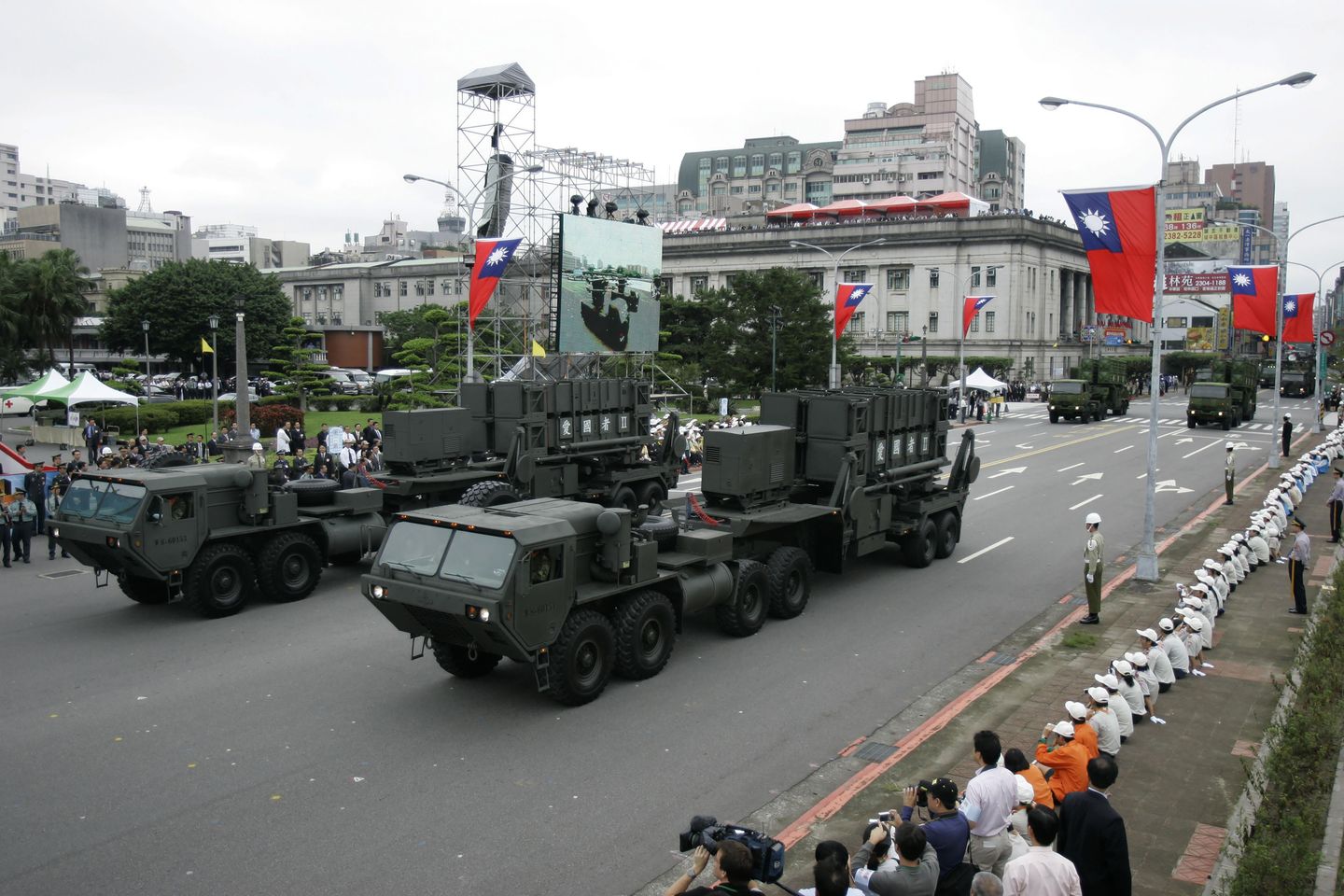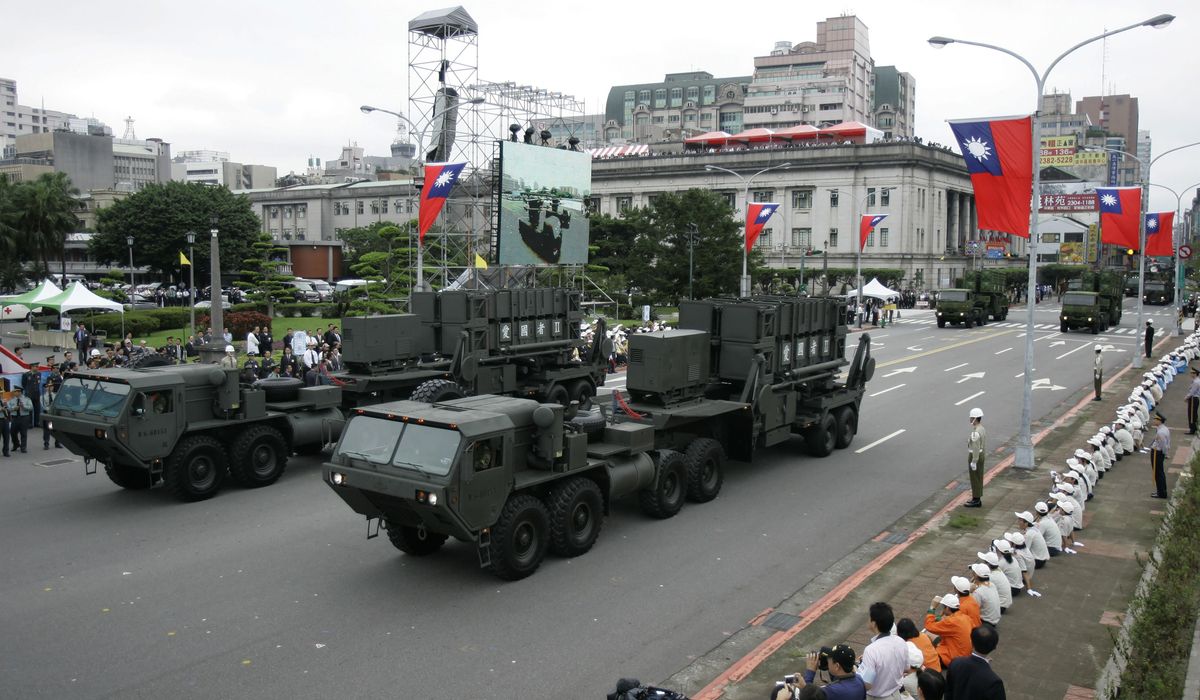

China is building up the military forces needed to invade and take over Taiwan by 2030, posing what a top U.S. intelligence official Tuesday described as an “acute” threat to the island democracy.
Director of National Intelligence Avril Haines told a Senate hearing that China’s leaders are still absorbing the lessons of Russia’s stalled invasion of Ukraine, but remain determined to seize Taiwan, preferably through a capitulation of the Taiwanese government. Beijing has long contended the island of nearly 24 million people is an integral part of China, and has shown rising anger at U.S. efforts to boost Taiwan’s defensive resources.
“It’s our view that they are working hard to effectively put themselves in a position in which their military is capable of taking Taiwan, over our intervention,” Ms. Haines a Senate Armed Services Committee hearing looking into rising global threats to U.S. security.
“I think it’s fair to say that [the situation] is critical or acute between now and 2030,” she added when questioned by lawmakers.
Intelligence agencies are still evaluating what lessons China may be learning from the Ukraine war and how that will affect Beijing’s timeline. Russia’s difficulties in making headway against a much smaller foe since the invasion began Feb. 24 and the advantages defenders appear to have in modern warfare are factoring into China’s calculations.
Former Indo-Pacific Command commander Adm. Philip Davidson said last year that China could attempt to take over Taiwan by the end of the decade. His successor, Adm. John Aquilino, later said an invasion could come sooner than 2030.
China’s decision on when to move against Taiwan will be affected by U.S. and Taiwanese military capabilities, capabilities that are being bolstered in light of the Russian invasion.
Ms. Haines said intelligence agencies are expected to have a more difficult time with indications and warning of a Chinese military attack on Taiwan, unlike the clear and repeated advance warnings of the Feb. 24 Russian invasion of Ukraine that U.S. analysts and the Biden White House issued before the war started.
Army Lt. Gen. Scott Berrier, director of the Defense Intelligence Agency, said there is a remote possibility China might see the Ukraine conflict not as a cautionary tale but as an opportunity to launch an invasion of Taiwan.
The DIA assessment, however, is that the Chinese “aren’t ready to do that right now,” he said, adding that he could discuss the matter with lawmakers in a confidential, private briefing after Tuesday’s hearing.
Gen. Berrier said that based on monitoring Chinese military activities, “I’m not seeing anything that would tell me that they are thinking about trying to take advantage of this time that they think they might have” for a surprise Taiwan invasion while much of the world is focused on Ukraine.
Taiwan also needs to do more to increase its military capabilities and the government in Taipei is discussing needed steps with the Pentagon, he said.
The lessons of Ukraine
Ms. Haines said the ruling Chinese Communist Party and military leaders are still evaluating lessons of the military action in Ukraine and how they could impact a Taiwan scenario.
“So it’s a little harder to tell whether or not it’s an increased threat of their accelerating their efforts toward Taiwan or less so,” she said.
U.S. intelligence analysts do not assess that the Ukraine conflict is leading Beijing to step up plans for an invasion, she said.
Ms. Haines described two takeaways for the Chinese from Ukraine conflict.
One is surprise at the quick and unified economic sanctions response from both the United States and Europe in response to Russian aggression, even though Moscow is a major supplier of energy to much of Western Europe. Sanctions are something Beijing must now consider should it invade Taiwan.
The second lesson is whether the People’s Liberation Army has the confidence to succeed in a military invasion of Taiwan considering a likely U.S. military intervention.
That is expected to affect Chinese leaders’ decision-making regarding a Taiwan conflict.
“We think seeing what happened in Russia may give them less confidence in some respects over what it is that is likely to happen” in a future Taiwan war, Ms. Haines said.
Sen. Josh Hawley said one of the lessons learned from Ukraine is that “deterrence didn’t work: Russia invaded Ukraine.”
“I, for one, don’t want to be having this conversation in any capacity in any period of years,” the Missouri Republican said. “My sense of urgency is [that] we better figure out how deterrence is going to work in Taiwan, because if China is successful in a fait accompli, that’s going to look a lot different than a scenario in Ukraine.”
Gen. Berrier said he agreed.
Gen. Berrier said, in his prepared testimony to the Senate panel, that China is threatening Taiwan and continues to conduct provocative military activities, such as warplane incursions into Taipei’s air defense zones. The three-star general said China also is rapidly building up its military forces in all areas, including space and cyber weapons, that could tip the balance of deterrence across the 110-mile-wide Taiwan Strait.
“China has a range of military options to coerce Taiwan, including increasing military presence operations, an air and maritime blockade, seizure of Taiwan’s smaller outlying islands, and a full-scale amphibious invasion of Taiwan itself,” he said. “Beijing appears willing to defer the use of military force as long as it considers that unification with Taiwan can be negotiated” and a costly conflict can be avoided.
China has not announced a timetable for reclaiming Taiwan but has increased both hostile rhetoric and military activity over the past three years targeting Taipei and independence-leaning President Tsai Ing-wen.
Chinese President Xi Jinping repeated his country’s longstanding refusal to renounce the use of force to resolve the Taiwan issue in January 2019.
This week Chinese naval forces conducted exercises that Chinese state media said encircled the island. The exercises of a naval battle group included the aircraft carrier Liaoning with flights of J-15 fighters. Coinciding with the naval drills, Chinese warplanes conducted operations from Thursday to Sunday that involved nuclear-capable H-6 bombers and J-11 and J-16 fighters.
